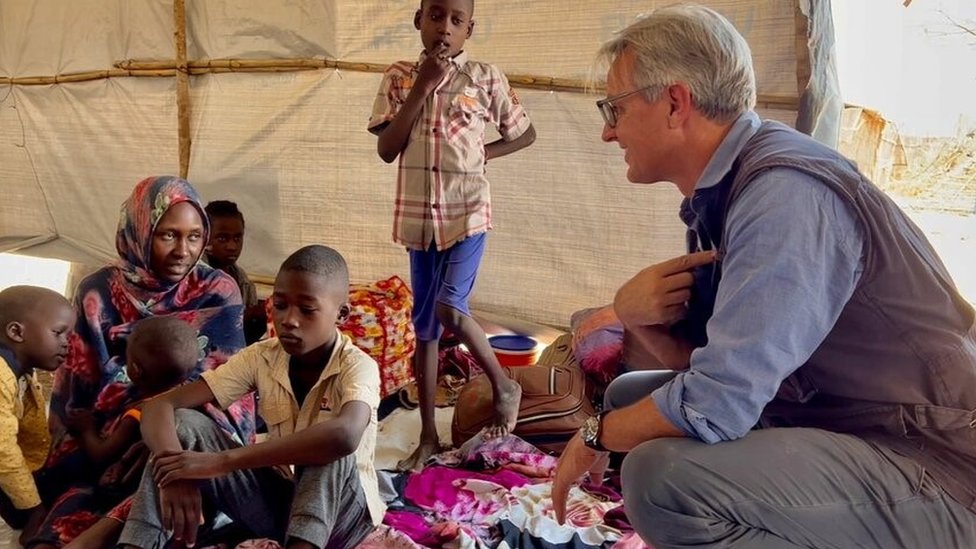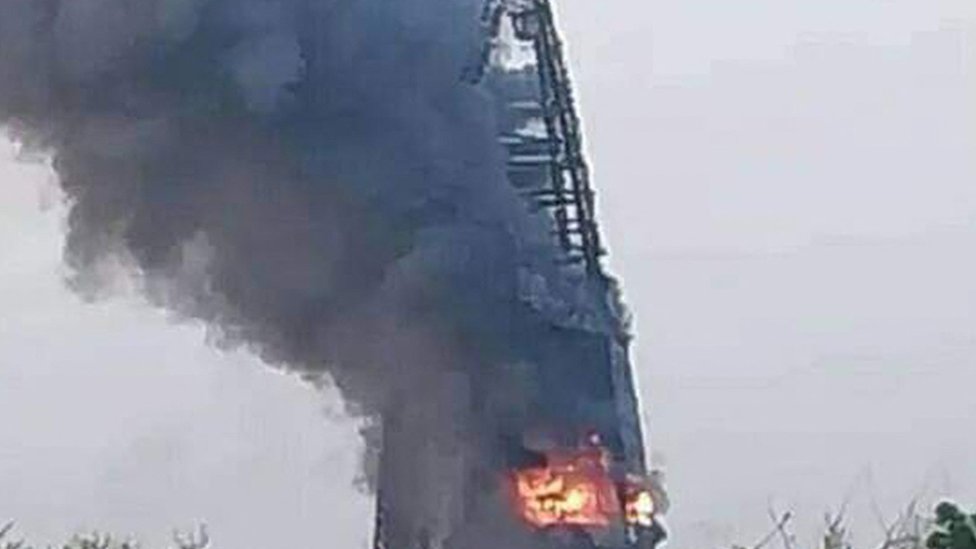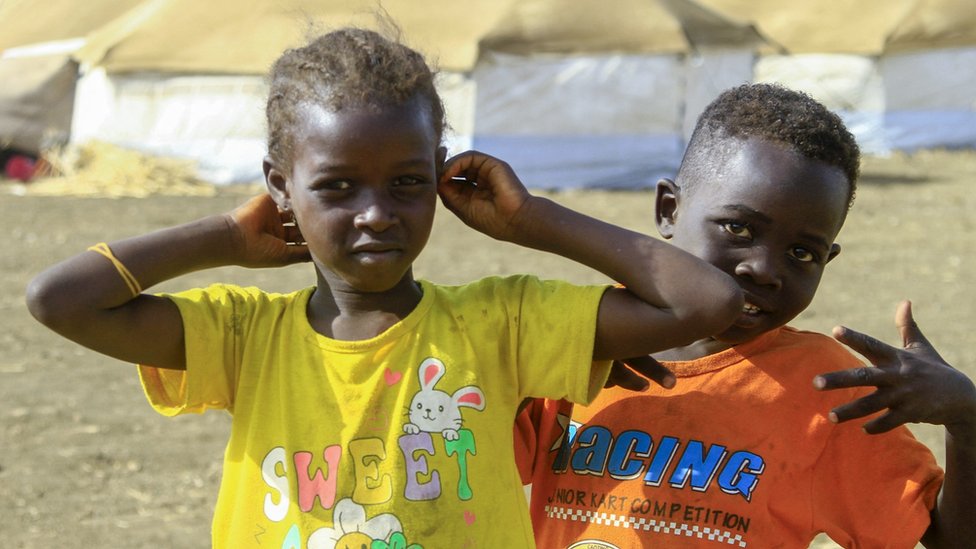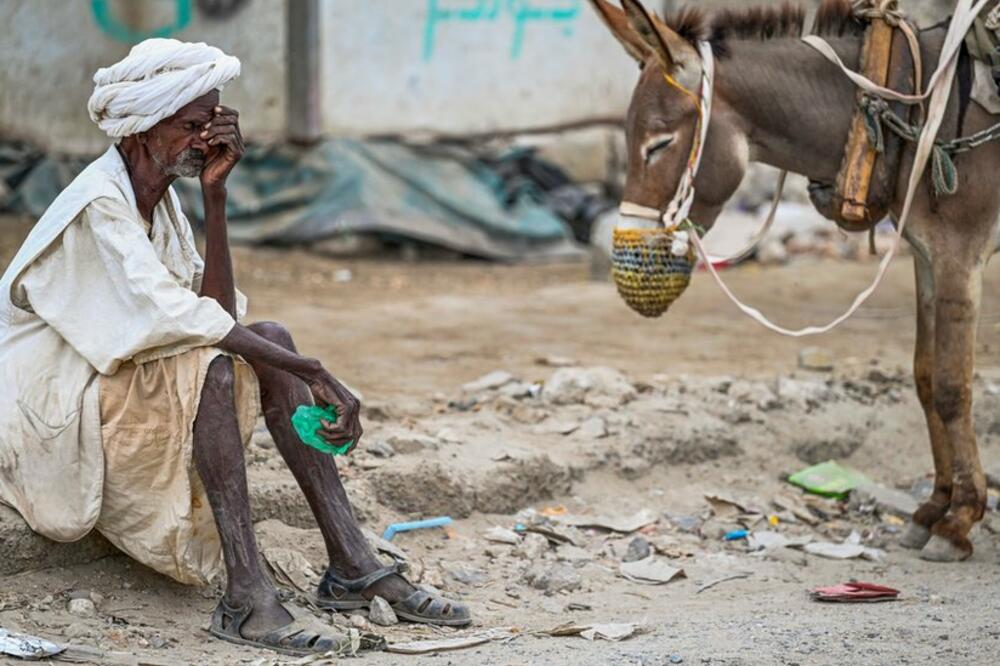A year has passed since the conflict between the Sudanese army and the paramilitary Rapid Support Forces (RSF) erupted, plunging the country into civil war.
The violence erupted in the capital Khartoum and spread across the country, causing thousands of deaths as well as widespread destruction of buildings and infrastructure.
A senior UN official told the BBC in Arabic that Sudan is now on its way to becoming the site of the worst hunger crisis in the world.
"We are dealing with a disaster and my fear is that it will only get worse," said Michael Dunford, Sudan Emergency Coordinator for the World Food Program (WFP).
Almost 18 million people are "acutely hungry," and that number could be much higher, he added.
- Sudan conflict explained: Who are the two generals fighting for power?
- The generals in Sudan are not ready to end the conflict, the UN claims
- War crimes suspects freed amid chaos in Sudan, shortages of food, gasoline and money
This would cover more than half of the Sudanese population.
Humanitarian aid experts also warn that 220.000 people could die in the coming months.

The fighting began on April 15, 2023, when tensions between the country's official military and its former ally the RSF exploded into the open.
Varnica was a political plan supported by the international community to move towards establishing a civilian government.
Experts fear that the official UN figure of almost 14.000 dead is too low, and that the real number is most likely much higher.
More than eight million people were forced to leave their homes, many of them internally displaced while others had to flee across borders to neighboring countries.
Watch the video: Who is at war against whom and why
A historic city in ruins
The capital Khartoum, together with the other nearby cities of Omdurman and Bahri, make up Greater Khartoum.
Before the war, it was home to seven million people.
The RSF control large parts of the city, but the army is on the offensive and recently took control of the state television headquarters in Omdurman.

Photographs and footage examined by the BBC's fact-finding team and BBC Arabic show damage to shops, hospitals, universities and banks.
Among the destroyed buildings is the famous tower of the headquarters of a large oil company, which caught fire in September last year.

At least three hospitals and one university suffered varying degrees of damage from the conflict.
Doctor Ala El-Din Nur from Khartoum told the BBC in Arabic that hospitals were facing severe shortages of medical supplies.
"We don't feel safe as doctors. Medical supplies and equipment were also looted," he said.
VFP says the destruction of infrastructure is exacerbating the humanitarian crisis.
"It increases the degree of food inaccessibility," Dunford added.
The BBC Fact-Finding Team and BBC Arabic have gathered new examples of the destruction in Khartoum that is contributing to the humanitarian crisis.

The Shambat Bridge, which connects the cities of Omdurman and Bahri, collapsed in November last year.
It was a strategic location for the RSF, which used it to move fighters and equipment across the Nile River.
In January, the Al Jaili refinery, located north of Khartoum, caught fire after reports of fighting.
The plant found itself at the center of the struggle for supremacy between the warring parties.
Leon Moreland, a researcher at the UK-based charity the Conflict and Environment Observatory, said 32 large reservoirs were damaged in three separate incidents between November 2023 and January this year.
"The oil leak could reach groundwater and agricultural areas down the slopes towards the Nile, if not intervened," he told the BBC in Arabic.
"This new contamination will exacerbate the pre-existing soil contamination at the site, which satellite imagery suggests was already substantial."

Satellite images also show that the tanks at three pumping stations in Khartoum are empty.
It is not known exactly how it happened.
Hasan Muhamed, a 31-year-old from Khartoum, told the BBC in Arabic that he has had problems with water and electricity cuts for the past four months.
"We have to walk long distances for drinking water or rely on non-potable river water, which leads to the spread of infections," he added.

Flights from Khartoum International Airport were canceled at the start of the war after it became a major battlefield, affecting the delivery of aid into the country.
The BBC's fact-finding team confirmed the authenticity of several airport footage from the first 48 hours of the conflict.

First shot examined by the BBC on 15 April was on the north side of the runway, where RSF members could be seen running across the tarmac and firing towards the main airport buildings.
Soon after, thick smoke billowed from at least one burning aircraft on the north end of the runway, as seen on this second recording.
Na to the third recording planes can be seen from the ground, most likely the same ones burning in the previous video, but this time from the east side of the airport.
Both the army and the RSF have been accused of damaging vital infrastructure in Khartoum, but they blame each other for it.
No end in sight
Fighting is also taking place in other parts of Sudan, especially in Darfur in the west, where violence between African and Arab communities has been raging for years.
A recent study by the Center for Information Resilience - a research group funded by the British government - found that more than 100 villagers in western Sudan had been burned.

Wal Fahmi, a Sudanese economic analyst, said the effects of the war on the economy and food system were catastrophic.
"The economy has been cut in half, and around 60 percent of agricultural activities have been suspended," he says.
The VFP is equally bleak in its assessments.
"What is happening in Sudan today is an absolute tragedy. We believe the situation has passed the point of no return," said Michael Dunford.
Several international attempts to mediate a ceasefire have failed, although there has been a renewed initiative for talks in the Saudi city of Jeddah.
Also watch this video: BBC reporter risked his life and drank water from the polluted Nile
Additional reporting by Samira Elsaidi i Benedict Garman
Follow us on Facebook, Twitter, Instagram, YouTube i Viber. If you have a topic proposal for us, contact us at bbcnasrpskom@bbc.co.uk
Bonus video:




